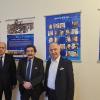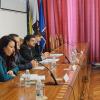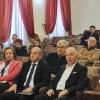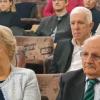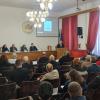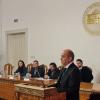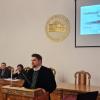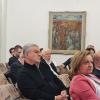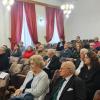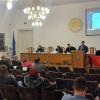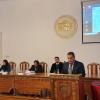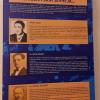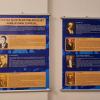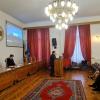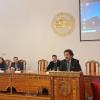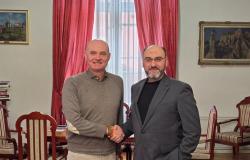The University of Sarajevo commemorated the Holocaust Remembrance Day
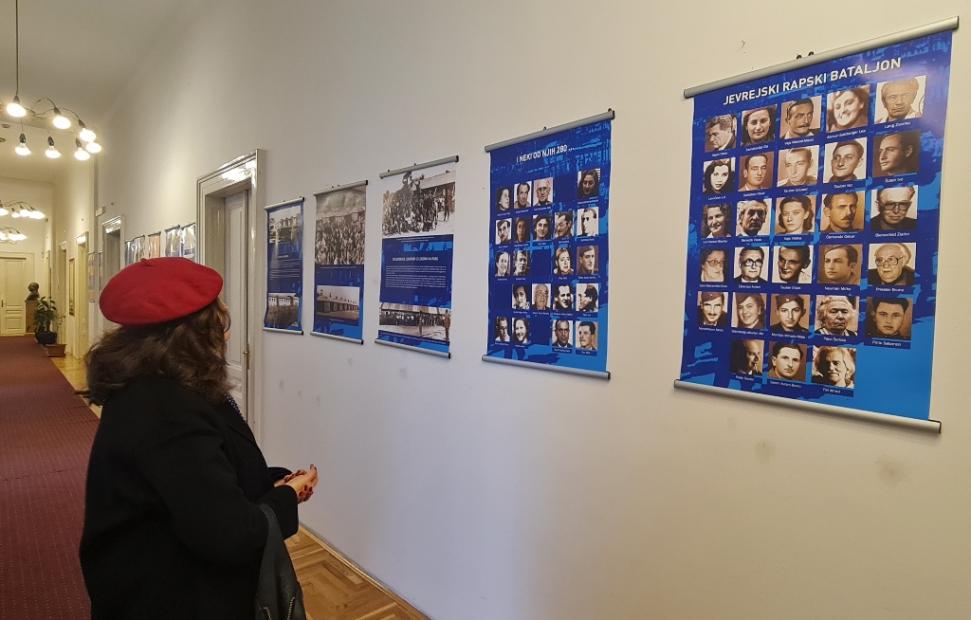
On the occasion of commemorating 27 January - Holocaust Remembrance Day, the Institute for Research of Crimes Against Humanity and International Law, University of Sarajevo organizes and participates in a series of activities every year to commemorate the victims of the Holocaust, as well as to further study the crimes committed on the territory of Bosnia and Herzegovina during the Holocaust. This year, the Institute for the Research of Crimes against Humanity and International Law, University of Sarajevo, organized the commemoration of Holocaust Remembrance Day on 26 January.
According to the program, held at the UNSA Rectorate, the opening of the exhibition: “Jewish Rab Battalion - Jewish National Heroes”, by Eli Tauber, and the scientific conference “The Path of the Exiled to Freedom” were held. In this way, the University of Sarajevo has joined the universities around the world that celebrate Holocaust Remembrance Day in an appropriate way.
The conference was opened by Prof. Dr. Rifat Škrijelj, University of Sarajevo Rector, pointing out that the University of Sarajevo is commemorating 27 January - Memorial Day for the Holocaust victims, who were killed in the most brutal way just because they were Jews, by opening an exhibition and holding a scientific meeting. “With the Nazi ideology, the Jewish people in Europe were condemned to destruction and death, collectively and individually, only because it did not fit into the concept of social engineering of the Nazi creators of eugenics who advocated a pure and superior German race,” emphasized Rector Škrijelj, and underlined the exceptional the importance of marking such dates, because, as he said, fascism as an ideology has never been fully defeated.
Rector Škrijelj reminded that the day of the liberation of Auschwitz – 27 January is celebrated all over the world as the International Day of Remembrance for the Victims of the Holocaust, urging us to be careful that such evil must never and anywhere be repeated.
At the conference, Dr. Hikmet Karčić (Institute for Research of Crimes against Humanity and International Law UNSA) spoke on the topic “Holocaust in Southeast Europe”. He told the media that the focus of his presentation was on the events before Adolf Hitler came to power, including the question - how is it possible for a certain evil to happen, and in the context of the ideology and propaganda that characterized that time. He specified that the analysis of key moments from the period 1919-1933 is significant in this respect. i.e. Hitler's entry into power and the establishment of the most brutal regime in the history of mankind.
Mr. Sc. Almir Grabovica (Institute for the Research of Crimes against Humanity and International Law UNSA) spoke on the topic “Anti-Semitic Laws”, while Dr. Eli Tauber, director of the Archives of the Jewish Community in Bosnia and Herzegovina, presented on the topic “Jewish Rab Battalion - from the camp to the partisans”.
Dr. Eli Tauber, the author of the exhibition “Jewish Rab Battalion - Jewish National Heroes”, told reporters that the exhibition, which contains photographs and a text section, testifies to the participation of Jews in the National Liberation Movement (NOP). It is a unit, a Jewish battalion that was formed after the liberation of the camp on the island of Rab, i.e. after the capitulation of the Italian fascist regime in September 1943. In this context, Dr. Tauber recalls that it was very significant, and that it was an organized joining of the NOP and partisan units.
The moderator was Dr. Zilha Mastalić Košuta (Institute for the Research of Crimes Against Humanity and International Law UNSA), who delivered the closing speech, and pointed out that the state was behind the Nazi solution, and that everything was done systematically. She emphasized that today it is necessary to strengthen the institutions in which research on the Holocaust and genocide will be carried out, and through such gatherings to learn what kind of evil it is.
In November 2005, the United Nations General Assembly unanimously adopted a Resolution marking 27 January as International Holocaust Remembrance Day. On that date in 1945, Soviet troops liberated the infamous Auschwitz camp. For a full sixty years, they worked on discovering the historical, cultural, psychological, and civilizational causes that made the pogrom of the Jews possible, but also on finding a suitable remedy so that it would never happen to anyone again.





